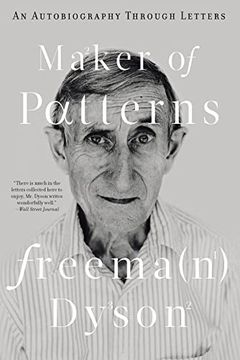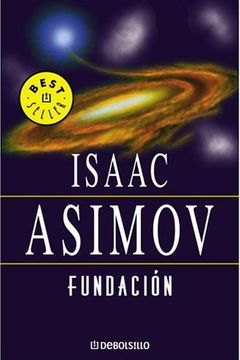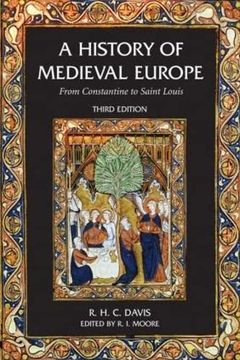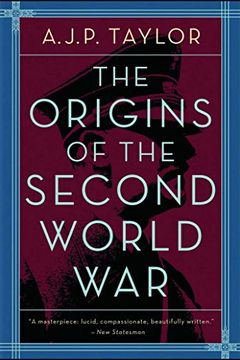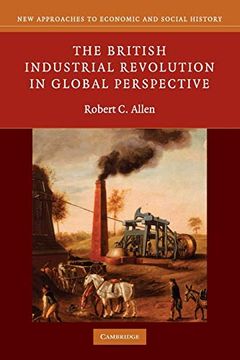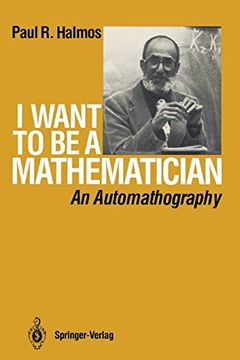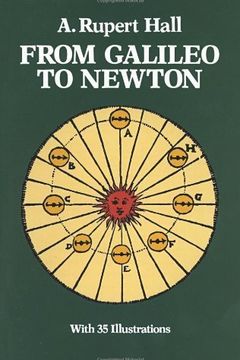Paul Graham
Libros Recomendados
Paul Graham is an English-born American computer scientist, entrepreneur, venture capitalist, author, and essayist. He is best known for his work on Lisp, his former startup Viaweb, co-founding the influential startup accelerator and seed capital firm Y Combinator, his blog, and Hacker News
101 libros en la lista
Ordenar por
Últimas recomendaciones primero
Diseño
Having penned hundreds of letters to his family over four decades, Freeman Dyson has framed them with the reflections made by a man now in his nineties. While maintaining that “the letters record the daily life of an ordinary scientist doing ordinary work,” Dyson nonetheless has worked with many of the twentieth century’s most renowned physicists, ...
Paul Graham
2023-01-25T22:23:46.000ZMucho tiempo después de que la Tierra pasara al olvido, la galaxia se unificó alrededor de un Imperio pacífico gobernado desde la majestuosa ciudad de Trántor. El sistema funcionó y prosperó durante incontables generaciones. Todo el mundo creía que duraría eternamente... Todos menos Hari Seldon, la mente científica más poderosa de su tiempo. Sus investigaciones en el campo de la psicohistoria (las matemáticas aplicadas a las grandes aglomeraciones humanas) auguraban un desastre imposible de prevenir. El Imperio estaba condenado... Pero el Plan Seldon era una estrategia a largo plazo, destinada a minimizar las peores consecuencias del futuro que se avecinaba. Para ello se establecieron dos Fundaciones en ambos extremos de la galaxia. Esta es la historia de la primera.
Isaac Asimov es el autor más influyente y destacado de la ciencia ficción y la divulgación científica del siglo XX. 'Fundación' es el comienzo de la primera trilogía de Las Fundaciones, una de las obras maestras del género.
Paul Graham
2022-08-12T23:36:47.000ZThis classic work provides a comprehensive account of medieval Europe, making it an essential resource for undergraduate and 'A' level students. The third edition is updated with the latest research and diverse viewpoints, with each original chapter concluding with a 'new directions and developments' section by an expert in the field. Perfect for both those new to medieval history and those seeking to specialize in the subject.
Paul Graham
2022-07-30T14:36:49.000Z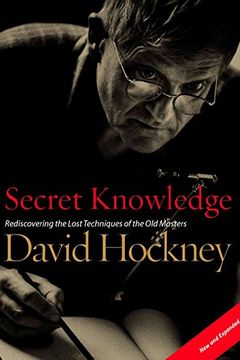
Secret Knowledge
Rediscovering the Lost Techniques of the Old Masters
Discover the shocking truth about how the Old Masters created their masterpieces in Secret Knowledge. Artist David Hockney's extensive research reveals that hyperrealists like Caravaggio and da Vinci actually used optics and lenses to achieve their highly detailed paintings. Hockney's passionate and straightforward analysis is accompanied by hundreds of reproductions of famous works, along with his own photographs and drawings. Experience a mind-bending journey of discovery that will forever change the way you view art and the world around you.
Explore the causes of one of the bloodiest conflicts of the 20th century with a classic of modern history. Controversial for its thesis that Hitler had no thorough plan, this extensive examination of international politics and foreign policy is a groundbreaking work by influential British historian A.J.P. Taylor. With clear, relatable prose, Taylor depicts the diplomatic mistakes from both the Allied and Axis powers that led to the outbreak of World War II. Discover why The Observer called The Origins of the Second World War "an almost faultless masterpiece."
Paul Graham
2022-05-15T16:57:38.000Z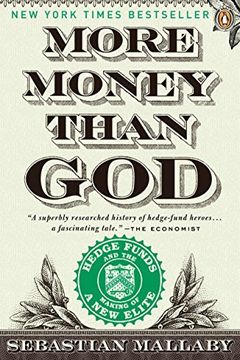
More Money Than God
Hedge Funds and the Making of a New Elite (Council on Foreign Relations Books (Penguin Press))
Experience a thrilling journey through the history of hedge funds, from their beginnings in the 1960s to their critical role in the 2007-2009 financial crisis. Powerful, wealthy, and potentially dangerous, the hedge fund industry has cracked the mysteries of beating the market and earned fortunes in the process. Discover the inside story of this fascinating corner of capitalism, complete with larger-than-life characters and dramatic tales, in a definitive history written by esteemed financial writer Sebastian Mallaby.
Paul Graham
2021-04-08T15:57:38.000ZThis book explores why the Industrial Revolution happened in Britain and not elsewhere in Europe or Asia. Author Robert C. Allen argues that it was a response to the global economy of the seventeenth and eighteenth centuries. With high wages and cheap energy, the breakthrough technologies of the revolution were uniquely profitable to invent and use in Britain. As the cost of these technologies decreased in the 19th century, industrialization spread around the world.
Paul Graham
2021-03-04T13:14:30.000ZDiscover the key ingredients for success in mathematics with this fascinating addition to the world of math culture. Written in a personal, honest, and reflective way, this book delves into the essential qualities needed for a successful career in mathematics, including talent, single-mindedness, a sense of humor, and a deep love for the subject. Don't miss out on this insightful document for the history and sociology of science!
Paul Graham
2021-03-04T13:14:30.000Z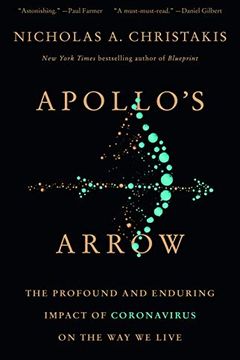
Apollo's Arrow
The Profound and Enduring Impact of Coronavirus on the Way We Live
"Unravel the science behind the COVID-19 pandemic and its impact on our lives with this thought-provoking must-read for 2021. Apollo's Arrow presents a captivating analysis of the virus as it infiltrated American society in 2020 and the future implications of its aftermath. Author Nicholas A. Christakis expertly weaves in historical epidemics, contemporary research, and interdisciplinary insights to shed light on the collective experience of human existence during a time of plague. Discover how this pandemic has divided our society and also revealed opportunities for cooperation in a startlingly new way. With vivid examples and bold arguments, Apollo's Arrow offers a unique perspective on the intersection of science, medicine, genetics, data science, sociology, and epidemiology."
Paul Graham
2020-11-04T13:07:05.000ZDiscover the pivotal stage in the history of science between Galileo's astronomical findings and Newton's mathematical achievements. This book traces the revolution in physics during the century spanning 1630-1720, highlighting the work of Huygens, Leeuwenhoek, Boyle, Descartes, and others. With 35 illustrations, explore the transition that led to Newton's vastly influential contributions to science.
Paul Graham
2020-10-18T11:07:26.000ZLa Ilíada by Homer
Wing Leader by J. E. Johnson
Autobiographies by Charles Darwin
Moab Is My Washpot by Stephen Fry
El camino hacia el Lean Startup by Eric Ries
Maisy Mouse Collection 10 Books Set Series 2 Lucy Cousins Early Learner Children by Lucy Cousins
Años salvajes by William Finnegan
To Explain the World by Steven Weinberg
An Autobiography by Anthony Trollope
Vidas de los mas excelentes arquitectos, pintores y escultores by Giorgio Vasari
A Story Lately Told by Anjelica Huston
The Launch Pad by Randall Stross
Un día difícil by Mark Owen
Land of Promise by Michael Lind
Very Good, Jeeves by P. G. Wodehouse
Selfish Reasons to Have More Kids by Bryan Caplan
In The Plex by Steven Levy
The Government of the Tongue by Richard Allestree
The Fry Chronicles by Stephen Fry
The Golden Trade of the Moors by E. W. Bovill
Memoirs or Chronicle of The Fourth Crusade and The Conquest of Constantinople by De Geoffrey Villehardouin
Founders at Work by Jessica Livingston
The Old Way by Elizabeth Marshall Thomas
An Autobiography of Anthony Trollope by Anthony Trollope
Moorish Spain by Richard Fletcher
My Forty Years with Ford by Charles E Sorensen
El señor de los anillos by J. R. R. Tolkien
The Complete Calvin and Hobbes by Bill Watterson
La luna es una cruel amante by Robert A. Heinlein
The Black Riders by Violet Needham
Carbonel by Barbara Sleigh
Mi familia y otros animales by Gerald Durrell
Wheels for the World by Douglas Brinkley
Benjamin Franklin by Walter Isaacson
To Conquer the Air by James Tobin
The Autobiography of Benjamin Franklin by Benjamin Franklin
Space Settlements by N. A. S. A.
Clocks and Culture by Carlo M. Cipolla
Grain-Mills and Flour in Classical Antiquity by L. A. Moritz
El Hobbit by J. R. R. Tolkien
Euclid's Elements by Euclid
Mohammed and Charlemagne by Henri Pirenne
The Oxford History of Britain by Peter Salway
The Kings Depart by Richard M Watt
Marriage by Susan Ferrier
The Soul of A New Machine by Tracy Kidder
The Ancient City by Peter Connolly
Confessions by Jean-Jacques Rousseau
Oranges by John McPhee
A Sense of Where You Are by John McPhee
Richard Feynman by John Gribbin
Cómo ganar amigos e influir sobre las personas by Dale Carnegie, Robert Petkoff, Donna Dale Carnegie, Simon & Schuster Audio
Why the Allies Won by Richard Overy
Diocletian and the Roman Recovery by Stephen Williams
Structure and Interpretation of Computer Programs by Harold Abelson
The Complete Novels of Jane Austen by Jane Austen
The Mythical Man-Month by Frederick P. Brooks Jr.
How to Be Topp by Ronald Searle
Making of Europe by Robert Bartlett
Life in the English Country House by Mark Girouard
Hard Drive by James Wallace
Towns, Villages and Countryside of Celtic Europe by Francoise Audouze
Apología de un matemático by G. H. Hardy
The Man Who Knew Infinity by Robert Kanigel
The Copernican Revolution by Thomas S. Kuhn
Mathematician's Delight by W. W. Sawyer
The Quest for El Cid by Richard Fletcher
The Fall of Constantinople 1453 by Steven Runciman
Diario De Un Marine by E. B. Sledge
Flying Start by Hugh Dundas
Kelly by Clarence L. "Kelly" Johnson
The Harmless People by Elizabeth Marshall Thomas
Guns, Sails, and Empires by Caro M. Cipolla
Born Red by Gao Yuan
Sherlock Holmes by Arthur Conan Doyle
A History of Rome from its Origins to 529 A.D. as told by the Roman Historians by Moses Hadas
The New Penguin Atlas of Ancient History by Colin McEvedy
Memoirs of My Life and Writings by Edward Gibbon
The World We Have Lost by Peter Laslett
The Gallic Wars by Julius Caesar
Fillets of Plaice by Gerald Durrell
Sea Flight by Hugh Popham
Albert Einstein by Banesh (With the Collaboration of Helen Dukas) Hoffmann
The Extension of Man by J. D. Bernal
The German Generals Talk by Basil H. Liddell Hart
La doble hélice by James D. Watson
Civilisation by Kenneth Clark
Medieval Technology and Social Change by Lynn White
Small Wonder by Walter Henry Nelson
The Art of War in the Middle Ages by Charles Oman
The Battle of Alcazar by E.W. Bovill
